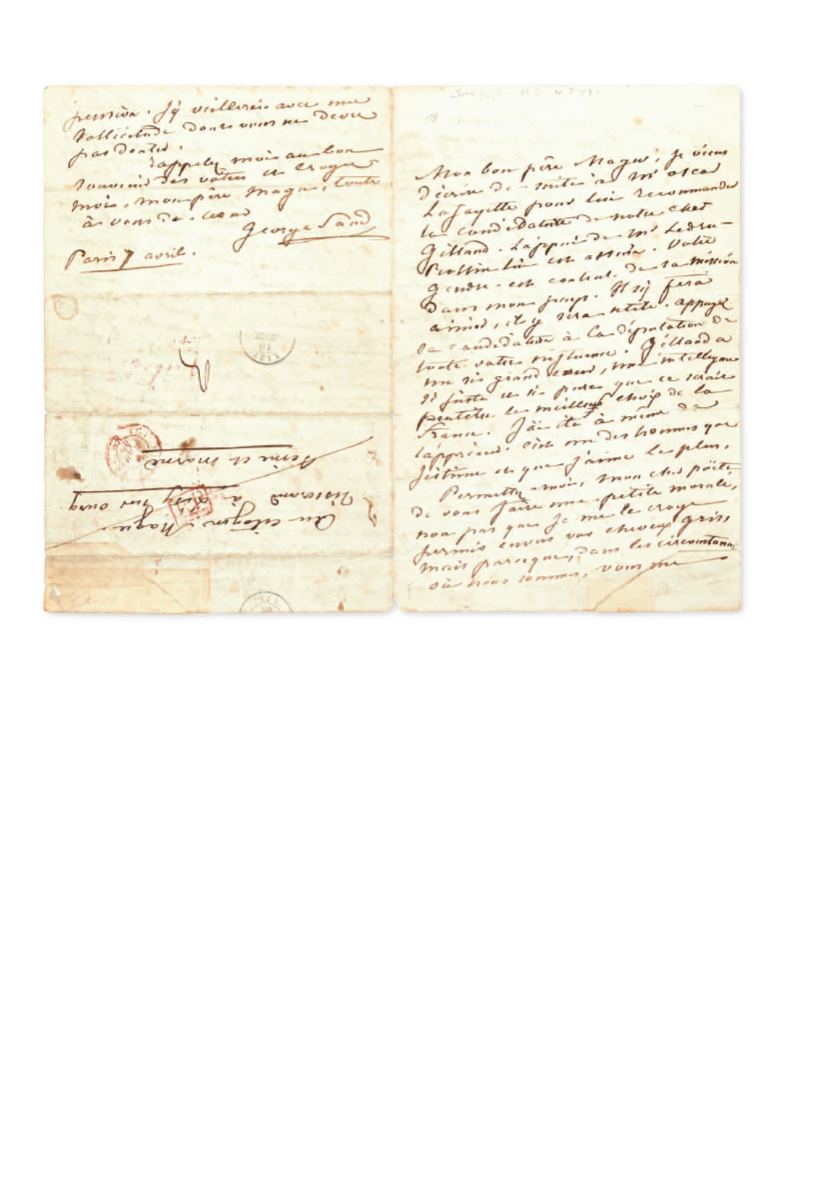

SUPPORTING A CANDIDATE FOR LEGISLATURE OF NEW REPUBLIC
289
●
SAND, GEORGE. Autograph Letter Signed, to “Père Magu,” in French, encour-
aging him to support his son-in-law [later French National Assembly member Pierre
Jérôme] Gilland in his pursuit of a deputyship, and urging him not to speak of Gilland’s
misery. 3
1
/
2
pages, 8vo, written on a single folded sheet; short closed tears at lower corners
repaired with tissue, evenly toned, faint scattered foxing.
Paris, 7 April 1848
[4,000/6,000]
“
I have just written to Monsieur Oscar LaFayette to recommend the candidacy of our dear Gilland to
him. . . .Your son-in-law is pleased with his mission in my region. He will ingratiate himself, and it
will be worthwhile to support his candidacy for Deputy with all your influence. Gilland is so big-
hearted and has such a fine and fair intelligence that he is perhaps the best choice that France could
make. . . . He is one of the men which I admire and like the most.
“
Allow me, my dear poet, to lecture you a bit . . . . In your letter, you say some things that I beseech
you not to talk about to anyone except me.You speak of poor Gilland’s misery;Alas! I know it all too
well . . . .They say that men of the lower classes want a deputyship so that they can have 25 francs
per day. I know Gilland, and if these two notions strike him at once, he would reject the deputyship
with horror, and that would be unfortunate since the country needs men like him. . . .You would
weaken him in the eyes of the people of the lower classes who have such a correct feeling for human
pride, and also in the eyes of the middle classes who seek only to belittle the virtue of a man in the
lower classes.
“
. . .As for the future, rest assured that Deputy or not, Gilland will work for the government because
it needs men like him more than men like him need it. The important thing is that hey recognize
themselves for what they are worth, and that their modesty doesn’t make them ineffectual. . . .”









